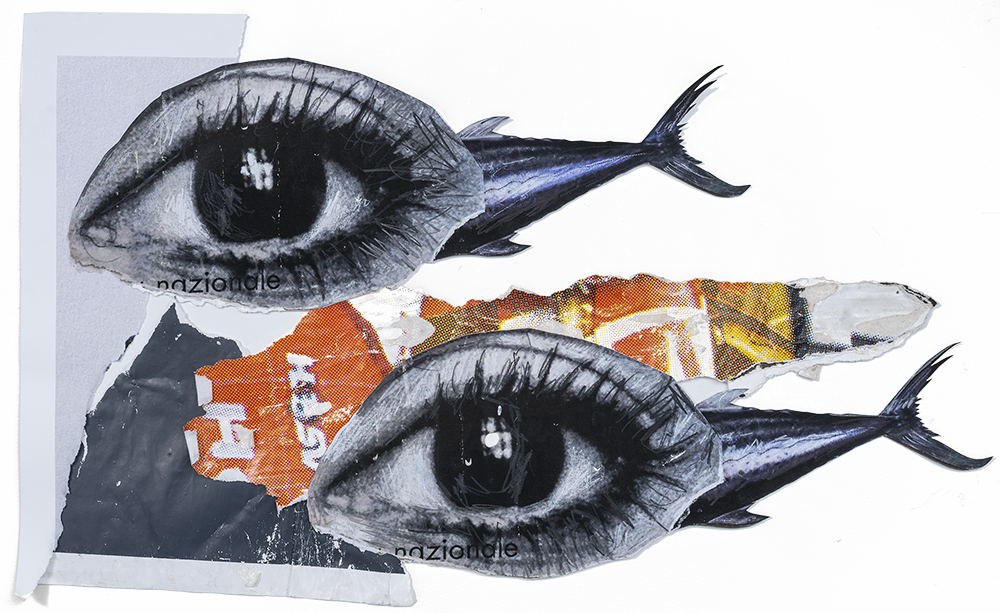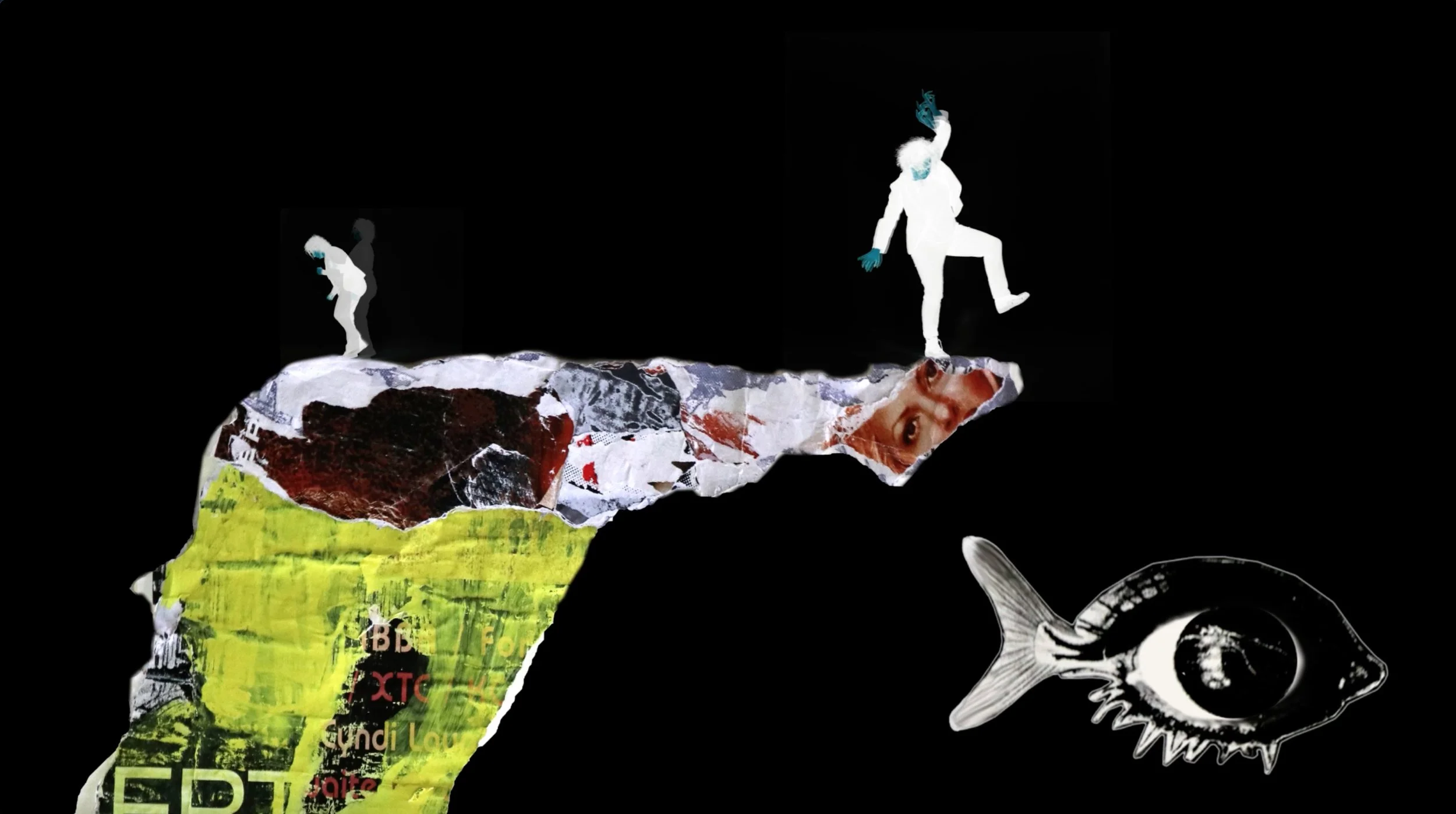Kellie O’Dempsey Exhibition Essay by Dr Louise R Mayhew | 20.09.23
Artwork: Kellie O’Dempsey, Two Eye Fish, 2023, Collage and mixed media drawing on 300gsm acid free rag matte paper, 79 x 48cm (framed).
Kellie O’Dempsey: Wish You Were Here
By Dr Louise R Mayhew
Wish You Were Here transforms the quiet and contemplative white cube into a glowing, moving, soundtracked landscape. Entering its space is an invitation to move through a world of psychedelia: to be bathed in dynamic neon, buoyed by its beat, and caught within its projections. In this uncanny dreamscape mash, schools of surreal eye-fish swim above land. Our gaze meets theirs: surveilling, unblinking. Collages layer together gestural marks, human snippets, and deftly-excised forms, conjuring figures both here and not here. Soft pastel materialities, nondescript hues, a generosity of white space, and ripped edges heightens their connotations of absence and erasure. Amongst it all is the artist’s immediately-recognisable silhouette (that hair, that cut-of-her-cloth).
In this body of work, O’Dempsey draws together new and diverse conceptions of time and space. Conceived during the height of the pandemic, the work formally mimics the past two years’ distorted temporality and sense of entrapment. This is clearest in the artists’ figure, which despite her persistent movement, like a hamster on its wheel gains no ground. Remnants from the artist’s archive of past live drawing performances and found fragments from mass media—the sports section of the newspaper, music billposters, and fashion magazines—speak to other times and places. The magazines and collected billboard posters, in particular, are saved from travels to and from New York, Berlin, and Brisbane. They act as memory vessels and imaginings of elsewhere. In turn, references from William Kentridge to Pink Floyd, Dan Flavin, Hannah Hoch, Raoul Hasmann, and Max Ernst make a hundred year history of this show and draw further geographical lines to Johannesburg, London, and Paris. Even the work’s titular refrain—Wish You Were Here—holds a peculiar temporal oxymoron of the future/past. “Wish” casts the imagination forward just as “were” looks back.
Video still: Kellie O’Dempsey, Wish You Were Here (Yellow), 2023, Animated video, edition 1/5, 56 x 97cm. Soundtrack by Mick Dick.
As O’Dempsey continued making throughout the pandemic, she also moved psychologically and physically into the role of primary care-giver for her ailing father. In turn, the elements in her work of stasis, isolation, and endurance took on new meaning, tinged now with the gendering of care labour and home. The appearance of a racing horse and dozing elderly man cements this component of the work. Notably the two (racehorse and sleeping father) appear above a head: positioning them as thoughts and the indeterminate yet nevertheless thinking/remembering/feeling female mannequin as the artist herself. In this context, the artist’s projected outlines, which multiply, repeat, and gently loop, can be interpreted as visualizations of her shattered sense of subjectivity. The work is both literally and pictorially an attempt by O’Dempsey to maintain an artistic identity while also filling the shifting roles of daughter, nurse, sibling, administrator.
As a post-structural protagonist in this work, O’Dempsey is decentred and incomplete while longing for Cartesian stability. Within her lamentation, I imagine her wishing for many things. Wish You Were Here: desiring her lover by her side. Wish You Were Here: a call for help. Wish You Were Here: conjuring her latent selves into being. Wish You Were Here: an ode to parents lost.
About the writer:
Dr Louise R Mayhew is an Australian Feminist Art Historian living in Meanjin/Brisbane. Louise is endlessly passionate about art and artists. Following a decade in academia, Louise currently freelances as a public lecturer, writer, and editor, and a mentor for emerging creatives.


